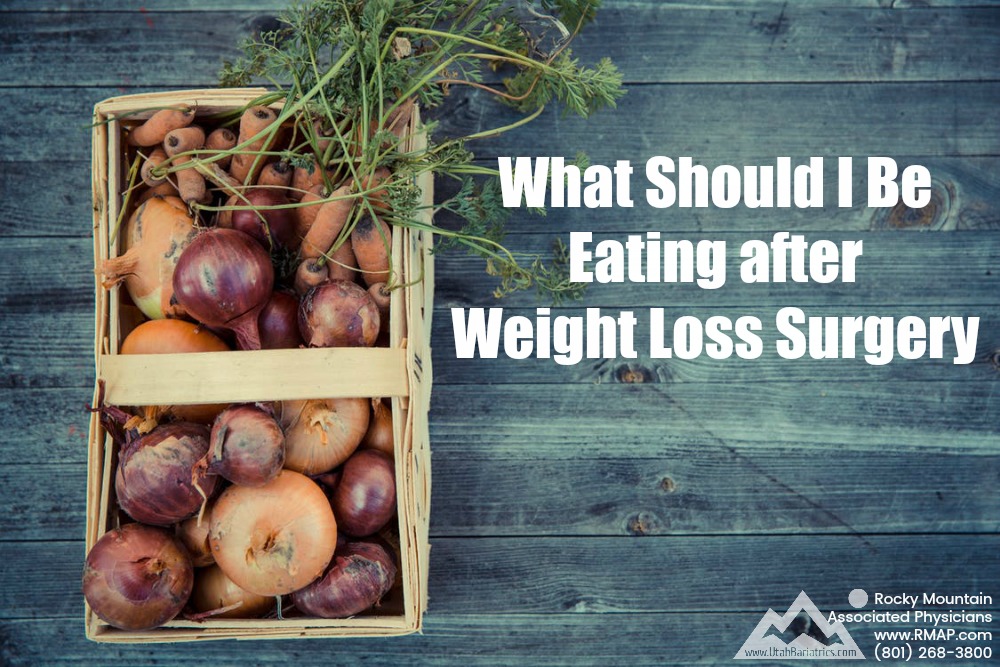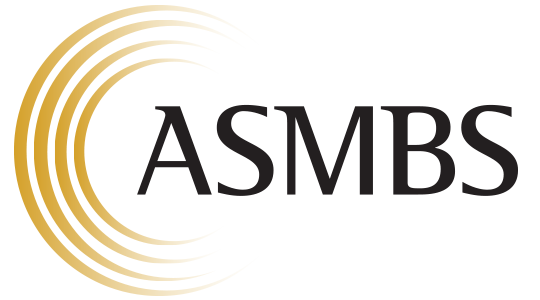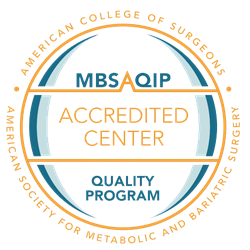
Learn more about weight loss surgery at Rocky Mountain Associated Physicians www.RMAP.com (801) 268-3800
After weight loss surgery many patients fall into the erroneous thinking that they are on a fad diet. Patients must realize that they are on a nutrition plan that they must follow for the rest of their lives. Often when people reach their goal weight they fall back into previous overweight eating patterns. Even with a small stomach, if patients do not implement the fitness and nutrition lifestyles, a weight re-gain will result.
When goals are met some patients deviate from the nutritional guidelines and indulge in food rewards because they “feel” they deserve it. You deserve to be healthy. You pay a high price when you consistently deviate from the nutritional guidelines. You do not deserve poor health. The candy bar or piece of cake may move you back to an unhealthy place that left you miserable. Recognize and be aware of what you do deserve and choose rewards that are not food related. A healthy lifestyle is a life-long commitment.
The amount of food that you can consume right after surgery is approximately two to four ounces. As the pouch/sleeve matures it enables you to tolerate a wider variety and a volume of up to six to eight ounces. Meals should never consist of more than eight ounces.
Food must always be eaten slowly. You should take twenty to thirty minutes to eat and stop upon the first sensation of fullness to avoid stomach discomfort, nausea or vomiting. Remember the “hunger sensation” may also be a cue that you need water.
The gastric pouch/sleeve has a limited capacity to assist with digestion. It does not church and mix gastric juices with food. Thoroughly chew your food to assist in the digestion process.
Diet Basics – Overview
- Meal size
- Gastric Bypass and Adjustable Gastric Band: 2 ounce meals
- Sleeve Gastrectomy: 2-4 ounce meals
- Duodenal Switch: 4 ounce meals
- 3 consistent meals a day
- Avoid carbohydrate foods
- Bread, rice, pasta, potatoes, fruit (corn for 1 year)
- No soda, coffee, black tea or alcohol
- Decaffeinated herbal tea OK
- Alcohol: More lenient after 1 year
- Drink at least 64 ounces of water each day
- No fried foods
Postoperative Diet (Day 2-3)
- Clear liquids only [clear liquid diet blog post]
- Sugar free Jell-O
- Beef, chicken or vegetable broth
- Counts as a meal
- 2 ounce portion size / 3 meals a day
- Hydration: Remember to drink!
- Advance water intake daily
- Goal is 64 ounces/minimum
- May need more with strenuous exercise or working outside
- No straws, chewing gum
Postoperative Diet
Gastric Bypass/Band: Day 4-6
Sleeve/DS: Day 4-14
- Full liquid Diet [full liquid diet blog post]
- Light yogurt
- Cottage cheese
- String cheese
- Strained soups – no chunks
- Cream of mushroom, chicken, or celery
- Split pea, tomato
- Prepare with water or skim milk
Postoperative Diet
Gastric Bypass/Band: Day 7-30
Sleeve/DS: Day 15-30
- Soft/moist foods 70/30 rule
- 70% proteins and 30% vegetables
- Protein foods
- Low-fat dairy: cottage cheese, yogurt, cheese
- Eggs soft cooked or boiled
- Canned beans: navy, kidney, black, pinto, refried, etc.
- Canned chicken, turkey, fish (2-3 weeks post-op)
- Thinly sliced deli meats (2-3 weeks post-op)
Meals and snacks should follow the 70/30 rule for proper nutrition. 70% of the meal should come from protein dense foods, and 30% should come from vegetables. Avoid simple carbohydrates and sugars as they slow weight loss, interfere with maintenance, and may induce the “dumping syndrome” in some gastric bypass patients.
Postoperative Diet
Gastric Bypass/Band: Day 7-30
Sleeve/DS: Day 15-30
- Cooked vegetables
- Canned, frozen, fresh: cooked to soft texture
- Drink 6 oz. or more of water per hour
- Between meals
- Stop drinking liquids 30 minutes before/after meals
- Portions
- Bypass/Band: Limit amounts to 2 ounces per meal
- Sleeve/DS: Limit amounts to 4 ounces per meal
- 2 ounces of volume = 4 tablespoons
- 4 ounces of volume = 8 tablespoons
Diet (after 30 days)
- Continue with 70/30 rule
- Add foods one at a time for tolerance
- Protein
- Extra lean ground beef/turkey
- Soft moist meats, poultry, fish
- Continue low fat dairy, beans, eggs, deli meats and cheese
- Wait at least 6 weeks before introducing red meat or pork that is not ground
- Vegetables
- After 8 weeks can add raw vegetables
Helpful Hints:
- Consistent meal times
- Stop drinking liquids 30 minutes before/after meals
- Eat slowly (20-30 minutes/meal)
- Chew well (yogurt consistency)
- NO protein supplements (unless directed by surgeon)
- Measure portions
- Bypass/Band: 3 tbsp protein and 1 tbsp vegetable
- Sleeve/DS: 6 tbsp protein and 2 tbsp vegetable
- Place portion on small plate
- Use small utensils
- Snack
- 1 ounce portions
- Protein foods
Measure your food prior to eating. This ensures that you are eating appropriate portions and getting the nutrition that you need. Remember, it is the volume of food and not the weight of the food that you are measuring. Keep measuring cups and spoons on hand.
¼ cup = 2 ounces; ½ cup = 4 ounces; 1 cup = 8 ounces
4 tbsp = 2 ounces; 8 tbsp = 4 ounces; 16 tbsp = 8 ounces
Always remember that each individual is different and will be different from you. Some foods will be tolerable, while others won’t be able to eat certain food items, or are still sensitive to adding food back into their diet. It all just depends on your body type. If you have any questions about food or nutrition, especially any kind of concerns, please give our office a call at (801) 268-3800.
For helpful hints on how to curb hunger between meals click here
For helpful hints on meal planning made simple click here
For helpful hints on meal planning and dining out click here
For helpful hints on how to be portion-wise click here
For helpful tips on carbonated beverages, caffeine and alcohol click here
For helpful hints on back to nutrition basics: some guidelines for life click here
For helpful hints on a lifetime of eating healthy click here
Find more answers to Frequently Answered Questions here.
www.RMAP.com
Rocky Mountain Associated Physicians
801-268-3800
1160 East 3900 South, Suite 4100
SLC, UT 84124













 Address: 1521 East 3900 South STE 100
Address: 1521 East 3900 South STE 100 Office: +
Office: +  Fax number (801) 268-3997
Fax number (801) 268-3997 Email: info@rmapinc.com
Email: info@rmapinc.com



